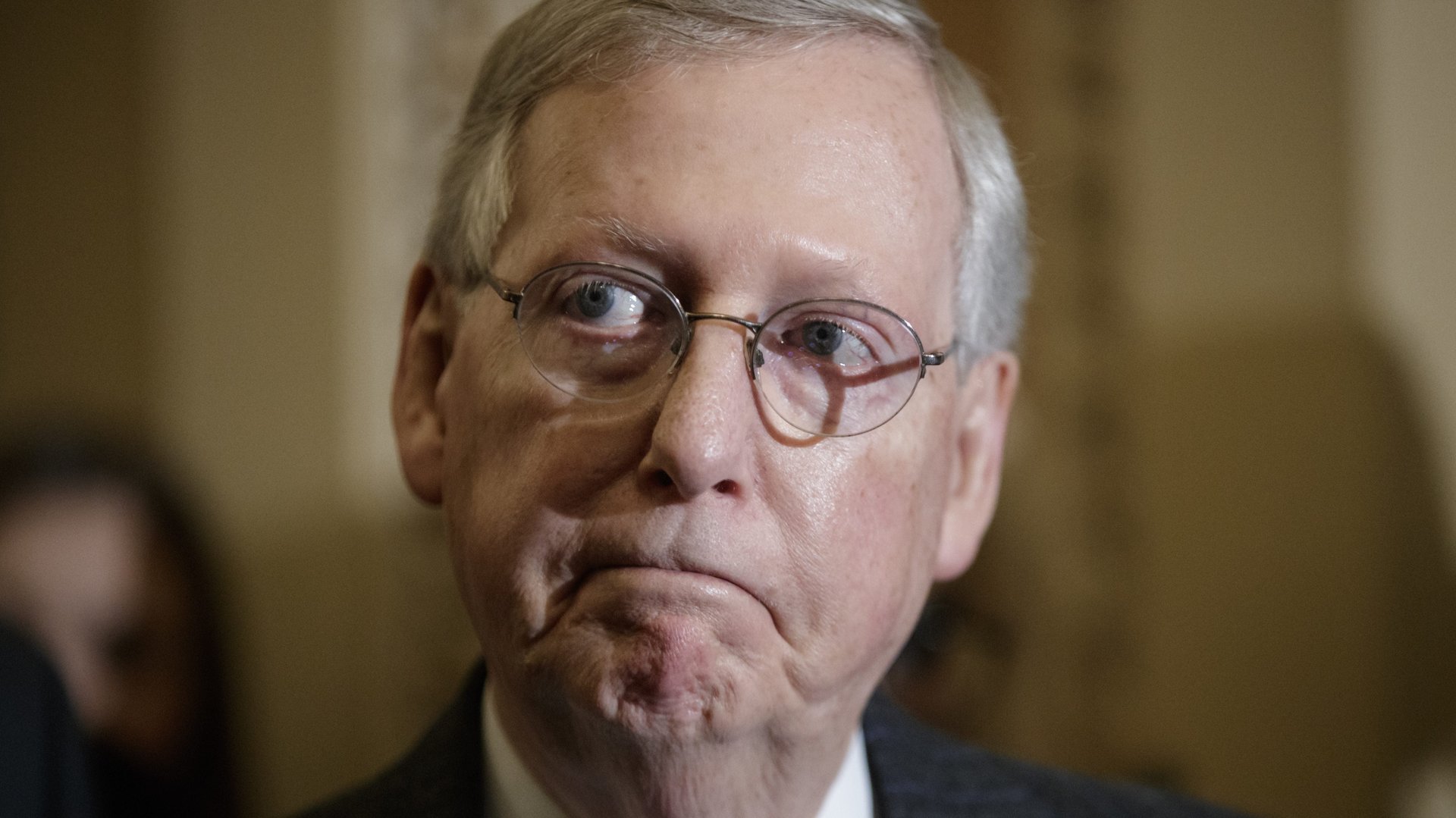Once hawkish Republican senators are now walking a fine line on Russia and Trump
Until US president Donald Trump’s election, Republican lawmakers were hawkish—sometimes to a fault—on Russia, regularly hounding president Obama for his perceived weakness toward the Kremlin.


Until US president Donald Trump’s election, Republican lawmakers were hawkish—sometimes to a fault—on Russia, regularly hounding president Obama for his perceived weakness toward the Kremlin.
Senate majority leader Mitch McConnell epitomized this in 2014, when he lambasted Obama’s “passivity” in the midst of the Ukraine crisis: “Some leaders are going to exercise power [and] will push limits as far as they can if they think that there’s no pushback,” McConnell said. “It’s no wonder that Putin looks at the United States and sort of concludes that no matter what he does, he doesn’t pay a price for it.”
Since then, Moscow has made an unprecedented cyberattack on the US electoral process, and Trump’s national security adviser, Michael Flynn, has just been fired over a scandal surrounding his contacts with the Kremlin. But McConnell and most of his fellow Republicans in Congress are walking a much finer line now.
Three Senate proposals aiming to hold the Russians’ feet to the fire have found a total of just six Republican co-sponsors between them. One of the bills would set up an independent, “9/11 style” bipartisan investigation into Russian hacking and the Trump team’s relations with the Kremlin; another proposes to counteract Russian hostilities through a broad swathe of actions; while another would give Congress considerable power to block the removal of sanctions on Russia.
The latter two have found support from a sprinkling of Republicans, including famed Russia hawks John McCain and Lindsey Graham. The one calling for the independent investigation is backed by 19 Democrats and zero Republicans—clouding an issue that both Graham and McCain in the past have insisted should be non-partisan.
Ben Cardin, the top Democrat on the Senate foreign relations committee and a key force behind the bills, says he believes there would be considerable Republican support if McConnell came on board. “My guess is that if you put this up for a vote as a secret ballot, it would pass overwhelmingly in Congress,” he said in a Feb. 14 talk at the Center for American Progress think tank. “But we [Democrats] don’t put things up—only the majority leader puts things up on the floor.”
McConnell’s office did not reply to a request for a comment.
Republicans have largely fallen back on the idea of expanding an ongoing Senate intelligence committee investigation into Russia’s involvement in the 2016 election. After Flynn’s ouster, foreign relations committee chair Bob Corker, a Tennessee Republican, called for those efforts to be broadened to “a fulsome investigation on all angles relative to nefarious activities that were taking place with Russia, beginning in March but even going back before that time.”
As for an independent investigation, Corker “stopped short of endorsing such an idea,” the conservative Washington Examiner reported, “arguing that these types of blue-ribbon commissions often take years to produce findings and may not have access to all the classified materials that a congressional panel would.”
Cardin, however, argues that any Congressional investigation would be too narrow in scope since no one committee has jurisdiction over all of the legal, foreign affairs, intelligence, defense, and other angles the case encompasses. He also suggests an investigation should not be carried out by sitting members of Congress, but by independent experts in the aforementioned topics who can devote significant hours to the investigation: “We need full-time attention to this issue—this is a matter of national security,” he said.
As if to underscore what’s at stake, the New York Times today (Feb. 14) reported (paywall) that Russia has deployed a cruise missile, in apparent violation of a nuclear-weapons treaty.